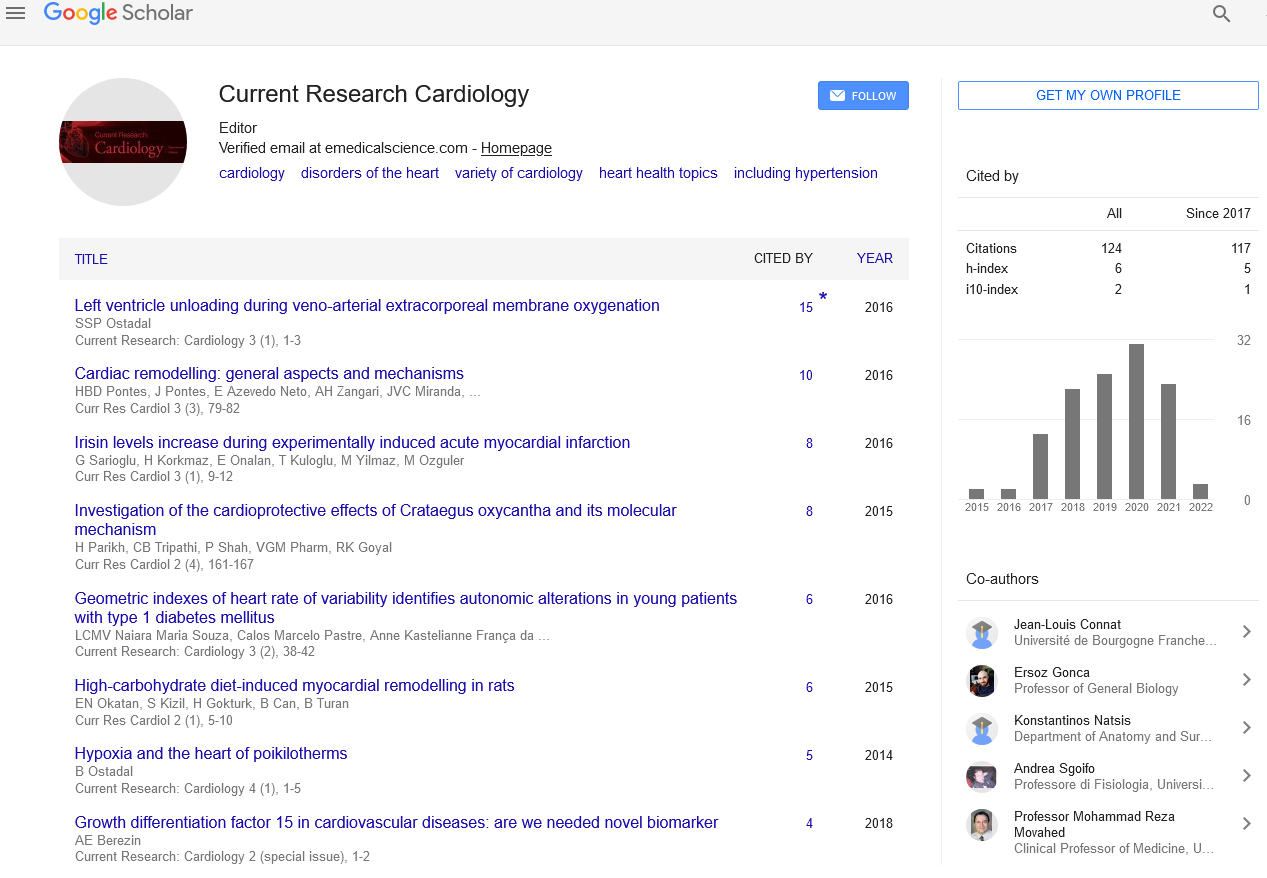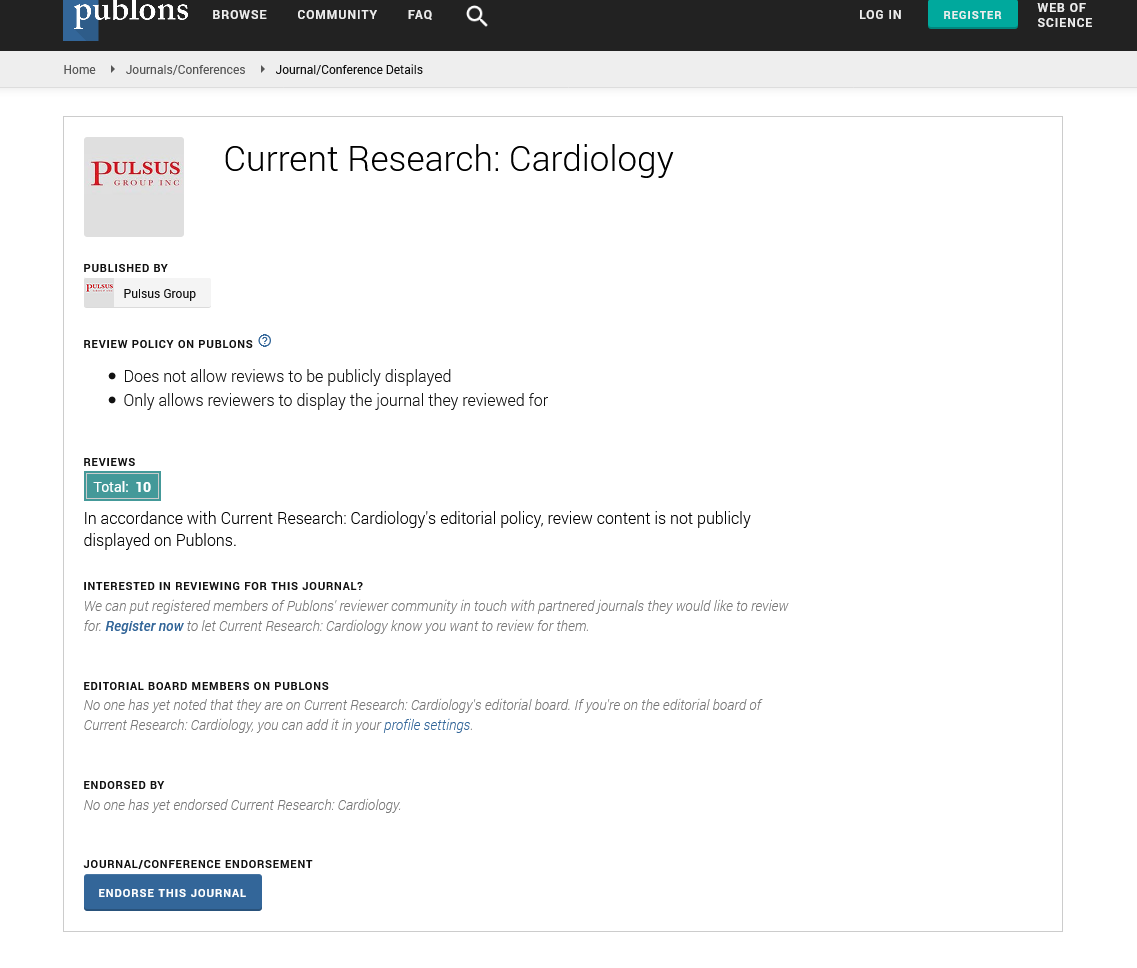
Sign up for email alert when new content gets added: Sign up
Abstract
Aspirin Therapy in Primary Prevention of Cardiovascular Disease Based on the 2019 ACC/AHA Recommendations
Author(s): Anjali SharmaIntroduction: Aspirin has been used for primary prevention of cardiovascular disease in at-risk populations. Recently, several trials including the ASPREE, ASCEND, and ARRIVE trials have raised controversy over the benefits of aspirin use in primary prevention. Based on these findings, the 2019 ACC/AHA guidelines recommend the following: For adults without diabetes 40 to 70 years old at high-risk for cardiovascular events (10-year ASCVD ≥20% by PCE) who do not have a high risk of bleeding, continued use of daily low-dose aspirin (75-100 mg) is recommended. For adults with diabetes 40 to 70 years old, the use of low-dose aspirin daily in patients at intermediate- to high-risk for cardiovascular events (ASCVD ≥10% by PCE) who do not have a high-risk of bleeding is advised. The objective of this study is to assess the number of patients who were previously prescribed aspirin in accordance with the recent ACC/AHA recommendations for primary prevention of cardiovascular disease.
Methods: Electronic medical records of 1,000 patients seen in the LAC+USC Primary Care Clinic seen during the month of November 2017 were reviewed and documented risk factors,
recent lipid panel and HBA1c, aspirin and statin therapy were recorded. Of the 1,000 patients, 694 met criteria for primary prevention and were therefore included in the study population. The ASCVD 10-year risk was calculated for each patient based on latest lipid panel and blood pressure. The ASCVD risk and 2019 ACC/AHA recommendations were used to determine which patients met criteria for aspirin therapy. Statistical significance was determined by calculating p-values.
Results: Out of the 694 patients between the ages of 40-70 years old without prior history of cardiovascular disease, there were 303 patients with diabetes and 391 patients without diabetes. According to the guidelines, non-diabetic patients with ASCVD ≥20% should be prescribed aspirin. 16.2% of nondiabetic patients with a 10-year ASCVD risk <20% were on aspirin therapy and 33.3% of those with an ASCVD ≥20% were on aspirin therapy. Based on the guidelines, diabetic patients with ASCVD ≥10% should be prescribed aspirin. Of the diabetic patients, 71.5% of those with an ASCVD ≥10% were on aspirin therapy and 46.2% of patients with an ASCVD risk <10% were on aspirin therapy.
Discussion: 16.2% of patients without diabetes with ASCVD <20% are inappropriately prescribed aspirin while 66.7% of patients with ASCVD ≥20% are not on aspirin therapy but should be according to the ACC/AHA recommendations. 46.2% of diabetic patients with ASCVD <10% are inappropriately prescribed aspirin while 28.5% of diabetic patients with ASCVD ≥10% are not on aspirin therapy but should be based on the ACC/AHA guidelines. A limitation to this study is that the PCE calculations are based on the most recent lipid panel while some patients were on statin therapy. Thus, many of the ASCVD 10-year risk assessments were calculated while patients were already on a statin, perhaps underestimating the number of patients for whom the guidelines would recommend aspirin therapy. Additionally, since many patients on aspirin for primary prevention are also on statin therapy, it is unknown whether statins effect the cardioprotective benefit of aspirin.





